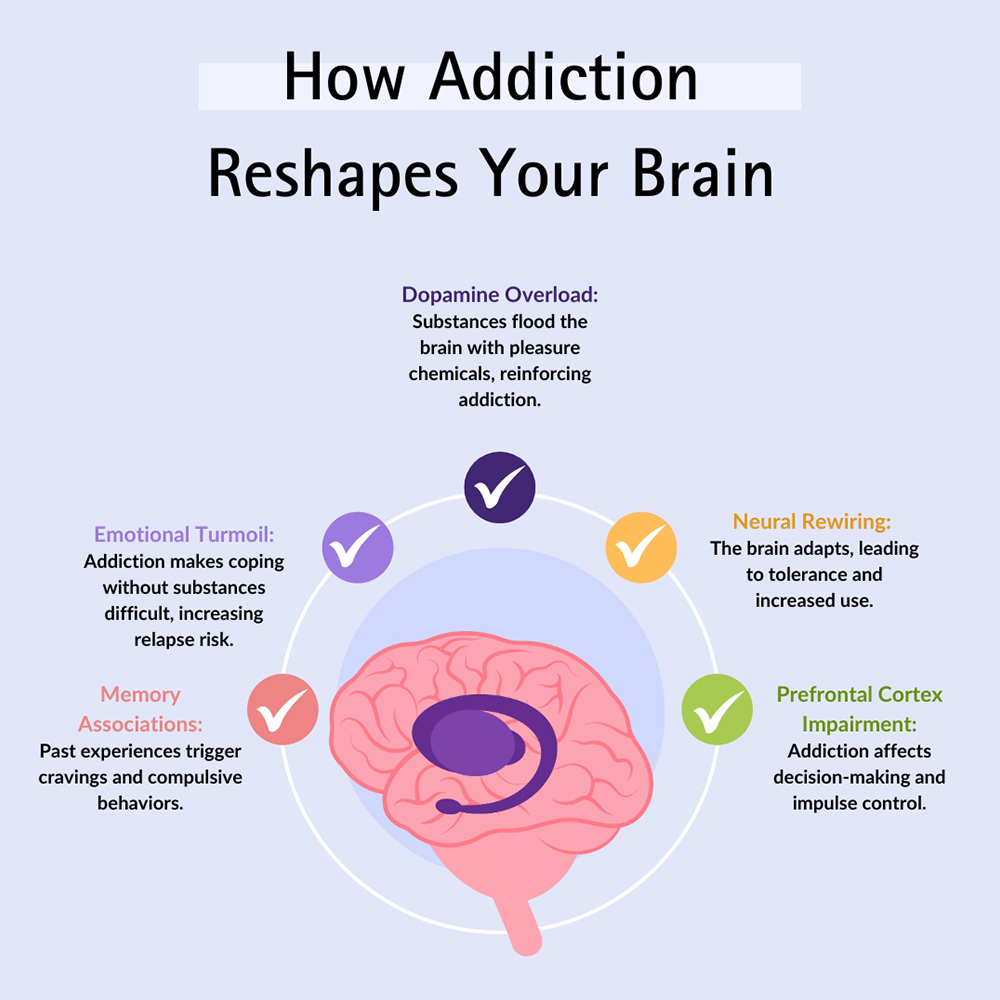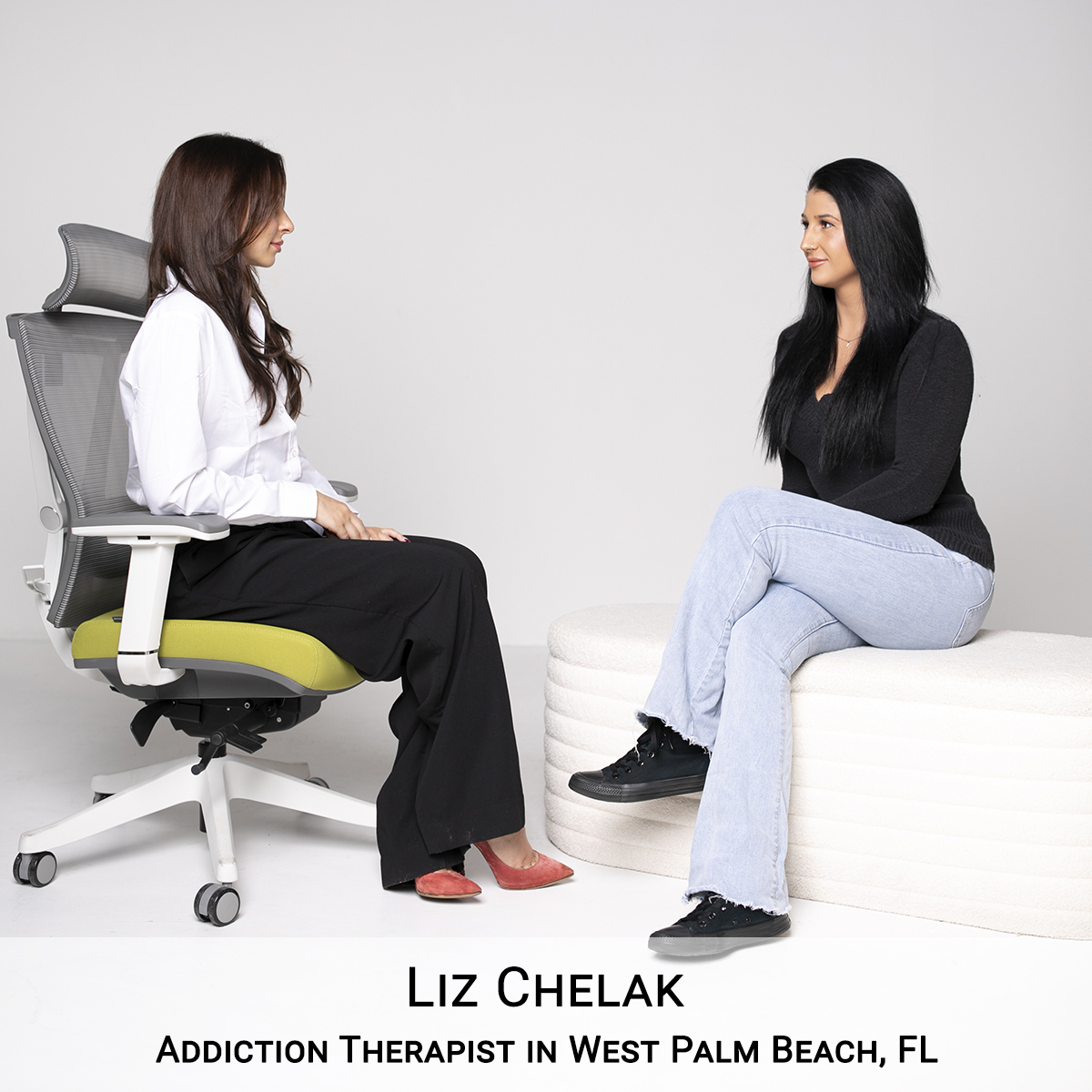If you are ready to take the first step towards recovery, please contact us today. We would be honored to help you on your journey to sobriety.
What Is Addiction Therapy?

Addiction therapy is a form of substance use treatment that is aimed at helping individuals abstain from substances such as drugs and alcohol. Addiction treatment involves learning healthy coping skills, building recovery capital, and managing cravings. Addiction therapists use proven techniques such as Cognitive Behavioral Therapy (CBT), Motivational Interviewing, and group therapy.
What Are the Goals of Addiction Therapy?
Everyone has their path to recovery and may require different interventions. The goals of addiction therapy can include:
- Long-term abstinence from drugs and alcohol
- Developing coping skills to deal with life’s challenges
- Identifying and resolving the root causes of substance use
- Identifying and creating a plan for dealing with triggers
Our addiction therapists are equipped to help you recover from addiction by bringing a unique approach by integrating their professional and personal experience in recovering from substance use.

What Are the Common Types of Addiction Therapy?
Some common types of addiction therapy include:
- Cognitive behavioral therapy (CBT): This approach helps you identify cognitive distortions, and negative thoughts, and learn tools to reframe these thoughts to more positive thinking patterns.
- Dialectical behavioral therapy (DBT): DBT focuses on skill building for dealing with emotions and distress tolerance.
- Motivational interviewing: This intervention is beneficial for clients who are having doubts about their willingness to participate in recovery. Motivational interviewing assists clients in tapping into their self-efficacy for their recovery.
- Trauma therapy: Oftentimes substance use is a symptom of trauma; treating the trauma and learning healthy coping skills relinquishes the need for drug and alcohol use.
Addiction therapy encompasses a range of effective approaches tailored to address the multifaceted nature of substance use disorders. Recognizing the interconnectedness of trauma and addiction, trauma therapy not only addresses the root causes but also instills healthier coping mechanisms, fostering a holistic path to recovery.
How Does Cognitive-Behavioral Therapy (CBT) Work in Addiction Therapy?
CBT works by changing the way you think, feel, and behave. It teaches you coping skills, which give you the ability to deal with the triggers that would have previously caused you to use substances. You will learn to handle negative emotions with improved problem-solving skills.
Embrace Healing The Power of Trust in Therapeutic Relationships
“In my experience, the most effective aspect of therapy is the therapeutic relationship. Establishing trust between a client and clinician is the first step to healing.”
What Is Medication-Assisted Treatment (MAT) In Addiction Therapy?
MAT combines medication and psychotherapy to treat addiction. Medication is used to combat cravings and block the effects of the drug if ingested. Therapy is used to identify the underlying causes of substance use, develop coping skills, and relieve the pain that causes drug use.
What Is Contingency Management (CM) in Addiction Therapy?
CM utilizes rewards to encourage positive behavior change. The reward is given immediately after the goal is achieved. CM has been shown to decrease relapse rates.
How Long Does Addiction Therapy Last?
The length of addiction treatment can vary depending on:
- Severity of substance use
- Motivation for change
- Progress in goals
- History of traumatic experiences
Addiction treatment should be viewed as a long-term plan. Addiction is a chronic disease, however, therapy helps to build self-esteem, create a support system, and make lasting lifestyle changes.
Can Family Members Be Involved in Addiction Therapy?
Yes, it is recommended that family members be a part of the addiction therapy process. Addiction is a family disease. Family therapy looks at how addictions affect the whole family.
Family therapy for addiction can help:
- Improve communication: An important part of recovery is learning to express your thoughts and feelings, as well as setting healthy boundaries.
- Support system: It is said that the opposite of addiction is connection. In recovery, it is important to have a sober support system, which the family can be a part of.
- Heal family trauma: Family trauma can contribute to addiction. Treating it with family therapy can help in addiction recovery.
Family therapy not only benefits the person living with substance use disorder but also the whole family.
What Are the Potential Side Effects of Addiction Medication?
Side effects depend on the medication you are taking.
However, some side effects of addiction medication, also known as Medication Assisted Treatment (MAT) include:
- Nausea
- Vomiting
- Drowsiness
- Dizziness
- Headache
- Memory loss
- Sweating
- Dry mouth
- Constricted pupils
- Low blood pressure
- Sexual side effects
- Urinary retention
It is important to talk to your doctor about side effects before you begin taking any new medication. Liz Chelak, LCSW invited her clients to consider their sleep, nutrition, and physical activity before beginning or discontinuing any medication.
How Can I Find an Addiction Therapist or Treatment Program?

To find the right addiction counselor for you consider the following:
- Your needs: What type of therapy are you looking for? What is your budget?
- Therapist’s credentials: Is your therapist certified in addiction and trauma therapy?
- Therapist’s approach: Do you feel comfortable with your therapist’s program?
- Therapist’s location: Do you prefer someone close or do you mind traveling? Or do you prefer telehealth?
If you are ready to take the first step towards recovery, schedule an appointment with our team of experienced addiction therapists at the Trauma Therapy Center in West Palm Beach today. We would be honored to help you on your journey to sobriety.

